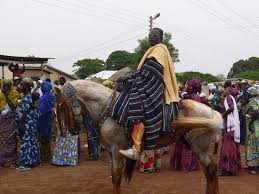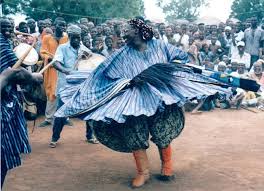Northern Region is a region that is filled with life and culture. It is a place where history and tradition intertwine. The landscape is dotted with communities that each boast their own unique customs, languages, and practices.
Here, you will also encounter a stunning variety of ethnic groups, each contributing to the rich fabric of the region. The people of Northern Ghana take immense pride in their heritage. This is evident in the numerous festivals they celebrate. Also. the intricate crafts they create, and traditional music that resonates through their villages.
In this region, festivals serve not just as celebrations, but as vital expressions of identity and unity. They are moments when families and friends gather to honor their ancestors. They also share stories, and reinforce cultural ties.
The artisans of Northern Region are equally remarkable. They skillfully preserve age-old techniques in textiles, pottery, and crafts. Their work embodies both creativity and tradition. Their work also showcases the skills passed down through generations.
Additionally, the traditional clothing worn in this area tells a story of its own. It also reflect the values and individuality of each ethnic group. Music and dance are not merely forms of entertainment. They are essential components of community life, used to convey messages and emotions.

As we delve into the cultural facts that make Northern Ghana special, you will also discover the depth and richness of its heritage. Let’s explore some of the most interesting aspects of Northern Region’s culture.
7 Interesting Facts About Northern Region
1. Diverse Ethnic Groups
Northern Region is home to various ethnic groups, including the Dagbani, Mamprusi, and Nanumba. Each group has its own unique traditions, languages, and customs. This diversity enriches the region and also creates a vibrant cultural landscape.
2. Traditional Festivals
Festivals are a vital part of life in Northern Ghana. Events like the Damba Festival bring communities together. These celebrations feature traditional music, dance, and delicious food. They showcase the community’s cultural pride and heritage.This makes the festivals a must-see for anyone visiting the region.
3. Unique Artisanship
The artisans of Northern Ghana are incredibly skilled. They create beautiful crafts that reflect the area’s artistic heritage. Handwoven textiles, such as smock, are particularly famous. Additionally, pottery and traditional leatherwork showcase the craftsmanship. These artisanship has been passed down through generations.
4. Cultural Dress
Additionally, traditional clothing varies among the ethnic groups in Northern Ghana. The smock (fugu) is a popular garment worn by men. It is often colorful and adorned with intricate patterns. Women typically wear vibrant dresses that represent their cultural identity. These garments is also as a symbol of their heritage.
5. Traditional Music and Dance
Music and dance are essential parts of cultural expression in Northern Region. Traditional instruments, like the talking drum and xylophone, create beautiful melodies. These performances often accompany ceremonies and celebrations. They bring people together and keep cultural traditions alive.

6. Rich Oral Traditions
Storytelling is also a cherished tradition in Northern Ghana. Elders pass down history, moral lessons, and folklore through engaging tales. These stories help preserve the community’s heritage. They also teach younger generations about their roots and values.
7. Spiritual Beliefs
Furthermore, the spiritual landscape in Northern Ghana is fascinating. Many communities blend traditional beliefs with Islam and Christianity. Ancestral worship and rituals coexist, reflecting a unique spiritual harmony. This blend honors both heritage and faith, creating a rich tapestry of beliefs.
The region’s ethnic groups, festivals, artisanship, clothing, music, storytelling, and spiritual beliefs all contribute to its rich cultural identity. By exploring these facts, you gain a deeper understanding of Northern Region’s heritage. You can also appreciate the beauty and complexity of this remarkable region.
Read Also: Top 10 Essential Tips for First-Time Travellers to the North







